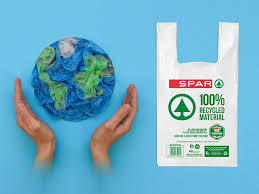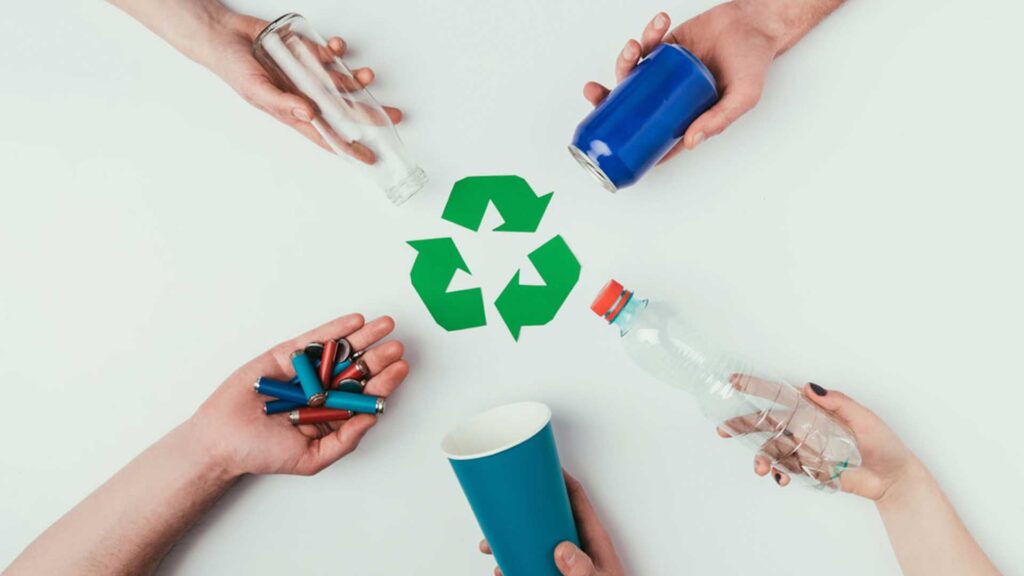However, experts argue that more in-depth solutions are needed to sustainably reduce plastic waste, beyond just charging for plastic bags.
While the implementation of bag fees in Singapore has begun, there is still a need for additional measures to address the issue of single-use plastic bags.
Over 400 stores, accounting for two-thirds of the total supermarkets in Singapore, have implemented bag charges for consumers. This fee applies to all types of bags, regardless of material, although plastic bags are the most commonly used in stores such as FairPrice, Sheng Siong, and Cold Storage. Other international retail chains like Fast Retailing Co.’s Uniqlo and Australia’s Cotton On, while not covered by the new policy, have also implemented bag charges or completely banned plastic bags.
The National Environment Agency of Singapore states that regardless of the material used, single-use waste has an impact on the environment during production, transportation, and disposal. The consumption of single-use products contributes to waste and carbon emissions, exacerbating the climate crisis.
Under the Zero Waste plan, Singapore aims to reduce the amount of waste sent to landfills by 30% per day by 2030. However, compared to other Asian countries, Singapore is lagging behind in reducing plastic consumption in stores. Japan, for example, implemented a mandatory fee for plastic bags in all retail systems in 2020, while South Korea banned single-use plastic bags in major supermarkets in 2019, and Thailand implemented a similar ban in 2020.

Professor Michael Maniates, a social science researcher at Yale-NUS University, predicts that this policy will lead to a reduction in the use of plastic bags in Singapore. However, the habit of using plastic bags for household waste may continue, as some small retailers still provide plastic bags for free.
Oliver Yuen, a senior economist at Research for Impact, points out that the habit of using plastic bags, particularly for wet waste, is deeply ingrained in people’s subconscious. As plastic bags may not be expensive for most Singaporeans, they are widely used by small retailers and street vendors.

Assistant Professor Yan Jubo, teaching economics at the Nanyang Technological University’s School of Social Sciences, states that while bag fees raise awareness, the effect may still be limited from spreading wide, as observed in other countries such as China’s ban on plastic bags. Green groups like Zero Waste SG and Plastic-Lite SG have proposed initiatives to encourage the use of reusable bags in grocery shopping.
Similarly, Associate Professor Jia Lile, from the Department of Psychology at the National University of Singapore (NUS), believes that not using plastic bags does not necessarily equate to an increase in environmental awareness among the public. However, as people start replacing plastic bags with reusable ones, the increasing popularity of these bags will gradually establish a social norm for a greener community.

The challenge here is to make people understand the importance of environmental protection in their daily lives, in addition to bag fees. Daily habits are more sustainable and can be maintained when individuals are motivated by intrinsic factors.
According to Associate Professor Hannah Chang, a marketing expert at the Singapore Management University, the bag fee serves as a constant visible reminder for consumers.
Associate Professor Seck Tan from the Singapore Institute of Technology suggests that the cost of packaging collection could be utilized to fund the maintenance and protection of “carbon sinks” such as forests or oceans. In fact, the Singapore government is encouraging supermarket chains to contribute plastic bag fees to social and environmental activities./.


 Tiếng Việt
Tiếng Việt